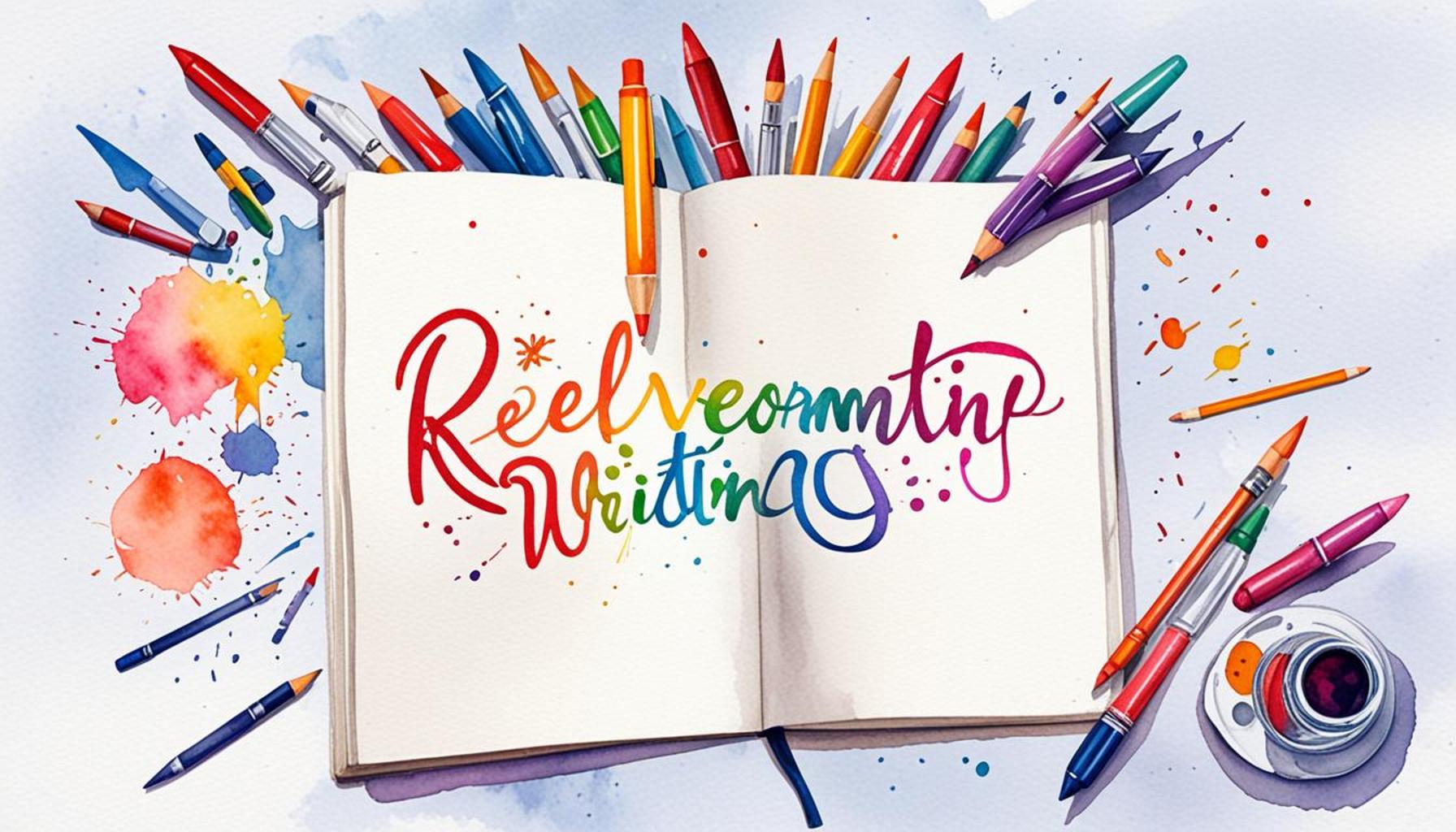How Reflective Journaling Can Boost Growth Mindset in Young Students in Nigeria

The Power of Reflective Journaling in Education
In the heart of Nigeria’s classrooms, a dynamic shift is crucial for nurturing resilience and adaptability in young students. Reflective journaling emerges as a potent tool, fostering a growth mindset that can transform perspectives on learning and personal development. Specifically, it empowers students to embrace challenges and view failures as growth opportunities, which is vitally important in a rapidly evolving educational landscape.
One of the primary benefits of incorporating reflective journaling in education is that it encourages self-reflection. Through the act of writing, students learn to think critically about their experiences. They can analyze their successes and setbacks, allowing them to form a clearer understanding of their motivations and learning processes. For instance, a student struggling with mathematics can document their thought process during a difficult problem, ultimately identifying where improvement is needed and how to approach similar challenges in the future.
Additionally, reflective journaling enhances emotional intelligence. It provides a safe space for students to express and process their emotions. By writing about their feelings related to personal events or academic pressures, they develop coping strategies and emotional resilience. A vivid example is a student reflecting on the stress of examinations. By articulating their anxieties on paper, they can recognize and address these feelings, leading to healthier responses in high-pressure situations.
Moreover, consistent practice in reflective journaling improves writing skills. As students engage with their thoughts more frequently, they cultivate clearer and more effective modes of expression. This is vital in Nigeria, where the ability to communicate articulately can open the door to numerous opportunities, both academically and professionally. A vivid illustration can be seen in students who engage in storytelling within their journals, fostering creativity while honing their writing abilities.
Within the unique context of Nigeria, reflective journaling can help address local challenges by ensuring that students can connect their educational experiences with their cultural realities. By documenting their thoughts, they can develop a deeper understanding of their own learning journeys, shaping their identities and aspirations. It becomes not just an academic practice, but a means of forging a stronger connection between personal and cultural narratives.
This article will further explore how reflective journaling specifically boosts a growth mindset in young learners. We will examine its potential impact within Nigerian educational settings and present practical strategies for implementation. Join us as we delve into the transformative power of this practice, aiming not just for academic excellence, but also for holistic development that equips students with the skills necessary for their futures.
RECOMMENDED: Check out this similar article
Unpacking the Benefits of Reflective Journaling
Reflective journaling is not just a creative outlet; it is a fundamental practice that can significantly enhance the development of a growth mindset among young learners in Nigeria. At its core, this practice encourages students to embrace the philosophy of lifelong learning—an essential skill in today’s fast-paced world. With the increasing demands of modern education and the world of work, fostering resilience and adaptability through reflective journaling can equip students with the tools they need to thrive.
So, how exactly does reflective journaling constructively influence a growth mindset? Here are several critical elements worth exploring:
- Challenge Recognition: Journaling allows students to document their encounters with challenges. For instance, a student might write about a failed class presentation. This reflective process enables them to see failure not as a definitive endpoint, but as an opportunity for learning and personal growth. Addressing these experiences head-on encourages a proactive approach to challenges that will serve them for life.
- Progress Tracking: One of the significant advantages of journaling is that it provides a tangible record of a student’s progress. By reflecting on their monthly or weekly entries, students can see how far they’ve come, which reinforces the notion that learning is a journey rather than a race. In Nigeria, where educational resources may fluctuate, having a personal roadmap of growth can be incredibly motivating.
- Goal Setting: Reflective journaling presents a platform for students to set and revisit their goals. By writing about their aspirations and attaching actionable steps to these goals, students can create a sense of ownership over their learning. The practice helps transform abstract ambitions into achievable tasks, increasing their commitment to personal development.
- Feedback Mechanism: Through reflective writing, students gain insight into their thought patterns and responses to various learning situations. This self-feedback loop is essential for young learners in navigating academic and social challenges. A student grappling with peer pressure can write about these encounters, leading to better coping mechanisms and strategies in real-life situations.
Moreover, when students share their reflective journals with peers or mentors, they invite constructive feedback that can further enhance their growth mindset. The supportive environment created through sharing experiences not only motivates students but also fosters community and collaboration within the classroom.
In the context of Nigeria, where education often operates within a competitive framework, implementing reflective journaling helps cultivate a supportive atmosphere where students can celebrate each other’s successes while acknowledging their individual challenges. The practice aligns with local cultural values that emphasize communal help and collective improvement. By blending individual reflection with shared growth, reflective journaling becomes an invaluable tool in bridging personal and collective aspirations, thus contributing effectively to shaping resilient future leaders.
| Advantages | Description |
|---|---|
| Increased Self-Awareness | Reflective journaling encourages students to explore their thoughts and emotions deeply, leading to enhanced self-awareness. |
| Improved Problem-Solving Skills | Regular reflection helps students develop critical thinking skills, enabling them to tackle challenges more creatively and effectively. |
| Emotional Regulation | Expressing feelings in writing can enhance emotional control, helping students manage stress and anxiety. |
| Resilience Building | Through journaling, students learn from setbacks and cultivate resilience, essential aspects of a growth mindset. |
Reflective journaling effectively transforms the educational experience for young students in Nigeria. By integrating these practices into curricula, educators can cultivate an environment ripe for personal and academic growth. Continued exploration of reflective journaling’s benefits can lead to innovative teaching strategies, empowering students on their path to success. As schools embrace these methodologies, the potential for fostering a resilient and adaptable generation becomes increasingly attainable.
RECOMMENDED: Check out this similar article
Enhancing Self-Awareness Through Reflective Journaling
In the journey toward cultivating a growth mindset, self-awareness is a critical component that reflective journaling significantly enhances among young students in Nigeria. By encouraging students to engage in regular reflection, journaling fosters an understanding of their thoughts, feelings, and behavioral patterns. This level of introspection is crucial for developing a mindset that views challenges as opportunities. When students learn to recognize their emotional responses to various situations—be it success or failure—they become better equipped to navigate their educational landscapes.
Furthermore, reflective journaling can serve as a vital tool in nurturing emotional intelligence, a skill that is increasingly recognized as essential in both academic and personal development. For instance, a child reflecting on their school day might express frustration over a difficult maths problem or joy from successfully collaborating with peers during a group project. Such reflections not only help in processing experiences but also create pathways for empathy and understanding, which are paramount in building healthy relationships in diverse classroom settings.
Encouraging a Culture of Continuous Learning
One of the pivotal roles of reflective journaling is its capacity to promote a culture of continuous learning. In Nigerian schools, where there is often pressure to excel academically, it is easy for students to develop a fixed mindset that borders on perfectionism. Reflective journaling disrupts this narrative by allowing them to recognize that mistakes are not just permissible; they are integral to the learning process. By writing down their errors, reflecting on them, and outlining steps for improvement, students shift their perspective from a fear of failure to a hunger for knowledge.
Moreover, schools that integrate reflective journaling into their curriculum foster environments where asking questions and seeking assistance become the norm. Students begin to understand that collaboration is a pathway to success. In the dynamic educational landscape of Nigeria, where numerous resources may be limited, embracing collaboration through journaling can lead to innovative solutions and shared learning experiences. The idea that collectively, students can tackle educational challenges complements Nigeria’s rich heritage of community-centered approaches to problem-solving.
Tailoring Education to Individual Needs
Reflective journaling also allows educators to better understand the individual needs and challenges of their students. By encouraging students to share their journal entries with teachers, educators can gain insight into their struggles and successes. This feedback loop not only helps in personalizing the educational experience but also ensures that teaching methods resonate with specific student needs. As teachers in Nigeria work hard to adapt to different learning styles and paces, reflective journaling offers a clear avenue to tailor instruction that empowers each student to flourish.
The connection between reflective journaling and the creation of individualized learning strategies is instrumental in developing a growth mindset. For example, if a student discovers through their journal that they excel in visual learning, a teacher can provide more visual aids and tools tailored to enhance this student’s learning experience. This personalized attention can stimulate motivation, confidence, and ultimately a more robust growth mindset as students begin to see academic challenges through a customized lens.
In essence, by interweaving reflective journaling with classroom practices, not only do we encourage self-exploration, but we also build a bridge towards collaborative learning and tailored educational experiences. Ultimately, these elements converge to craft resilient, capable young leaders prepared to face the complexities of the modern world. When students engage deeply with their reflective practices, they pave the way for a transformational educational journey that goes beyond textbooks and classrooms, cultivating adaptable learners who are undeniably equipped for the future.
RECOMMENDED: Check out this similar article
Conclusion: The Transformative Power of Reflective Journaling
In summary, the integration of reflective journaling into the educational framework for young students in Nigeria holds immense potential for fostering a growth mindset. As highlighted throughout this article, journaling not only promotes self-awareness but also nurtures critical emotional intelligence, allowing students to comprehend their emotional responses to learning situations. By transforming their perceptions of challenges, students can embrace mistakes as essential steps towards achieving mastery. This shift is pivotal in a society where academic pressure often encourages a fixed mindset.
Moreover, schools that emphasize reflective journaling help create a culture of continuous learning and collaboration. Such environments enable students to support one another, breaking down barriers that hinder collective problem-solving. This aligns well with Nigeria’s communal approach to education, where collaboration is key to overcoming academic hurdles and unlocking potential.
Additionally, the practice of reflective journaling facilitates personalized learning experiences, allowing educators to tailor their teaching methods to meet the diverse needs of students. By providing insights into individual challenges, journaling equips teachers with valuable feedback to enhance engagement and effectiveness in the classroom. This individualized attention can significantly inspire students, bolstering their confidence and adaptability.
Ultimately, reflective journaling emerges as a transformative tool that prepares young Nigerian learners not just for academic success but also for life’s myriad challenges. As students learn to navigate their educational journeys through reflection, they lay the groundwork for becoming resilient and capable future leaders. It is imperative that educators, policymakers, and stakeholders in Nigeria recognize the value of this practice and advocate for its broader implementation in classrooms nationwide.


